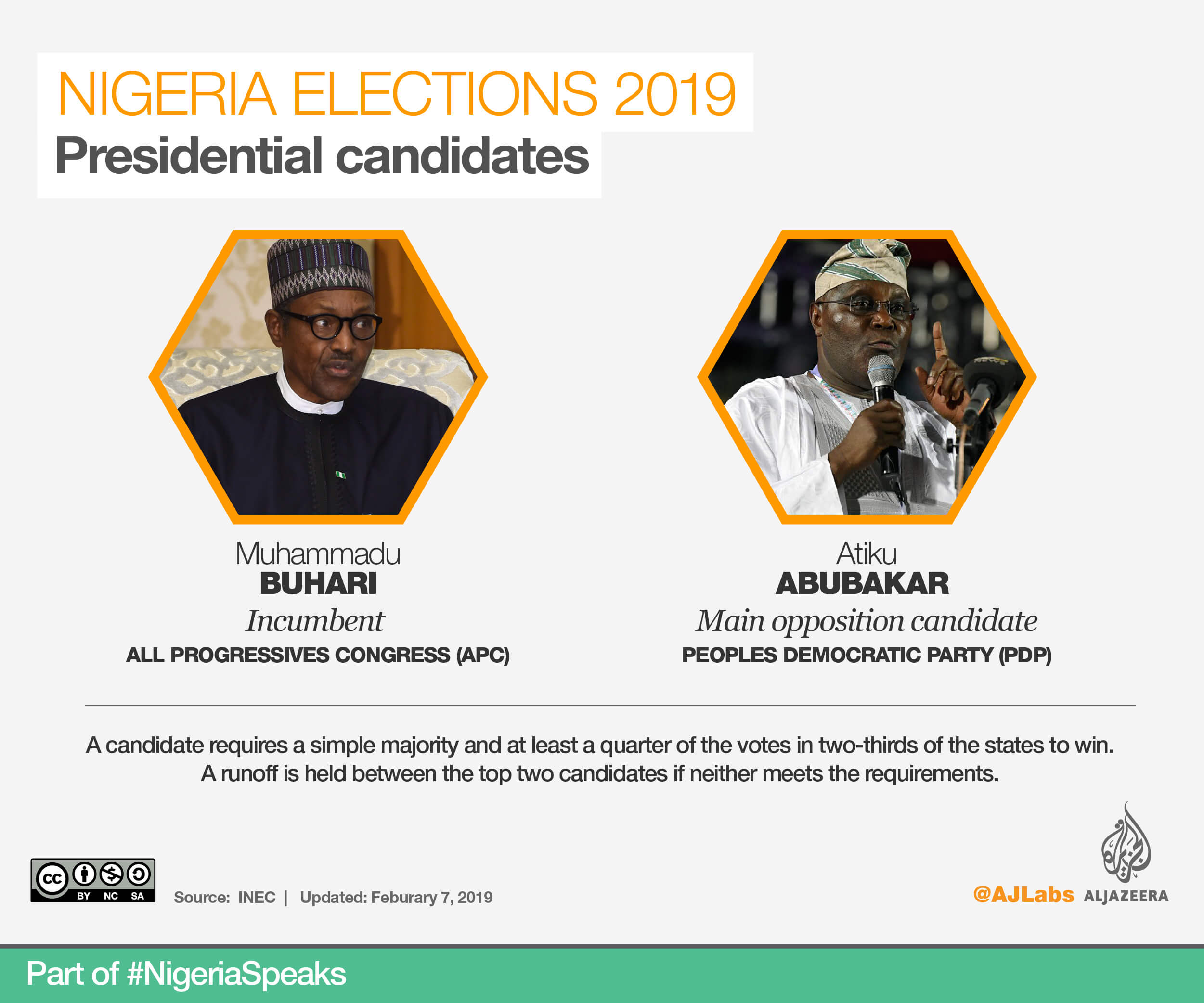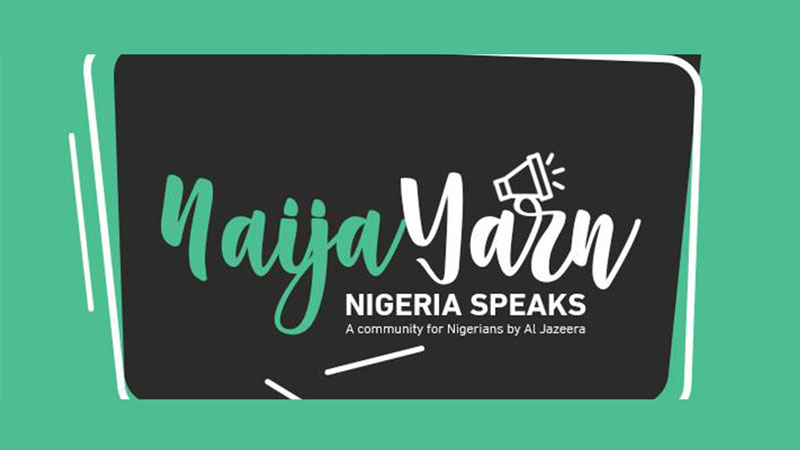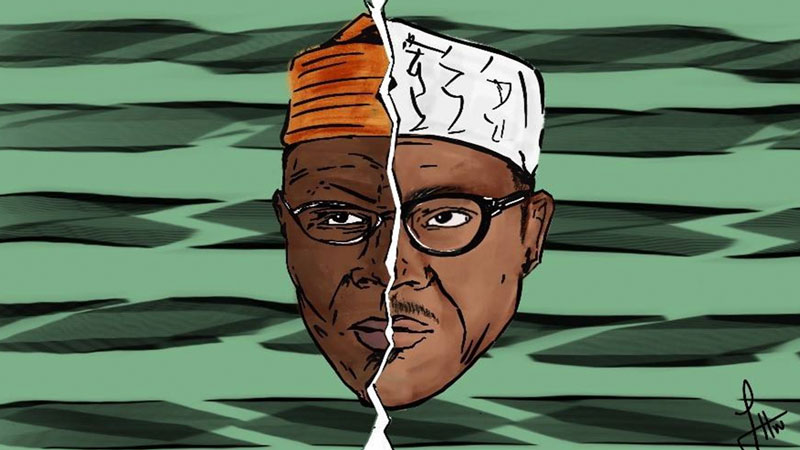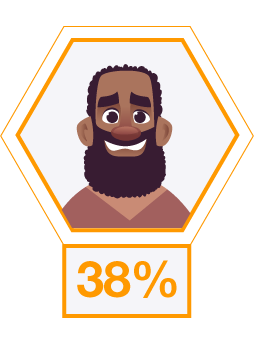In 2019, more people will vote than ever before.
Nearly two billion voters in 50 countries around the world will head to the polls this year to elect their leaders.
Some of the biggest elections include India - the world’s largest democracy with 800 million eligible voters, Indonesia - 187 million registered voters and Nigeria - 84 million registered voters.
Here’s how different voting systems work around the world:
Who's voting this year?
There are three main types of elections.
Presidential election
Voters elect the country’s head of state or president. The president holds the highest political position and officially represents the country.
Parliamentary election
The legislative body is elected by the people and, in turn, chooses the head of the government or prime minister. The legislative body implements laws and runs the government on a day-to-day basis.
In countries without a prime minister, such as South Africa, Brazil, and the United States, the president is both the head of state and head of government.
General election
Voters elect the head of state as well as federal and local representatives.
The 53 countries with elections in 2019:
January
February
03 El Salvador
23 Nigeria
24 Senegal
March
03 Tuvalu*
03 Estonia
10 Guinea-Bissau
16 Slovakia
24 Comoros
24 Thailand
31 Ukraine
April
04 India**
07 Andorra
09 Israel
14 Finland
17 Indonesia
18 Algeria
28 Benin
28 Spain
30 North Macedonia
30 Mali
May
05 Mauritania*
05 Panama
08 South Africa
12 Lithuania
13 Philippines
21 Malawi
26 Belgium
27 Netherlands
30 Chad
June
06 Libya*
16 Guatemala
30 Denmark
30 Latvia
July
07 Guyana*
07 Nauru*
20 Afghanistan
August
September
October
10 Botswana*
10 Canada*
10 Uruguay*
06 Portugal
15 Mozambique
20 Greece
20 Switzerland
27 Argentina
27 Bolivia
November
11 Australia*
11 Marshall Islands*
11 Namibia*
December
12 Croatia*
12 Dominica*
12 Romania*
12 Tunisia*
* Elections expected to be held during that month.
** India's elections are expected to be held thoughout April and May.
Voting at a glance
Select a country
Nigeria
LEADER
PRESIDENT
ELECTED FOR:
4 years
MAXIMUM TERMS:
2
SEATS IN PARLIAMENT
190,886,311
POPULATION
2019-02-23
ELECTION DATE
923,770
AREA IN SQUARE KM
18
VOTING AGE
General
ELECTION TYPE ?
Partial
ELECTRONIC VOTING
49.78%
PREVIOUS ELECTION TURNOUT
How old must you be to vote?
Ninety percent of the world votes at age 18. If you’re 16, you’d be eligible to vote in 7 countries. You'll need to be at least 21 to vote in Lebanon, Malaysia, Samoa, Singapore and Tonga.
HOVER/TAP FOR COUNTRY NAMES
16:
7 countries
17:
4 countries
18:
160 countries
19:
1 country
20:
2 countries
21:
5 countries
When could all citizens vote?
In 1893, New Zealand became the first country in the world to grant women the right to vote. By the 1950s, two-thirds of countries around the world had adopted universal suffrage, which allows all adult citizens equal rights to vote. The last European country to allow women to vote was Switzerland in 1971. In 1994, South Africa became the last African democracy to give equal voting rights to all following the end of apartheid. In Afghanistan, women gained and lost the right to vote several times. They have continuously held the right to vote since 2004.
HOVER/TAP FOR COUNTRY NAMES
1890s
1 country
1900s
2 countries
1910s
19 countries
1920s
13 countries
1930s
10 countries
1940s
41 countries
1950s
43 countries
1960s
28 countries
1970s
15 countries
1980s
4 countries
1990s
2 countries
2000s
1 country
How often are elections held?
Most countries hold elections every 4-5 years. The country with the most frequently held elections is San Marino, where a leader from one of two alternating parties is elected every six months.
HOVER/TAP FOR COUNTRY NAMES
Every year:
1 country
Every 3 years:
4 countries
Every 4 years:
51 countries
Every 5 years:
101 countries
Every 6 years:
6 countries
Every 7 years:
9 countries
No set period:
6 countries
How many terms can each leader serve?
Most leaders can either serve one or two terms in office. It’s not uncommon, however, for a country’s leader to have an unspecified term limit. In some countries, such as the United Kingdom and New Zealand, heads of government serve until they resign or lose majority support of parliament. Other countries without term limits, like Venezuela, let voters petition for a recall election after a certain period of time.
HOVER/TAP FOR COUNTRY NAMES
1 term
42 countries
2 terms
82 countries
Unlimited
54 countries
How long has the current leader been in power?
Cameroon’s President Paul Biya is the world’s longest-serving, non-royal leader. He’s been in power for 44 years. He’s followed by Equatorial Guinea’s Teodoro Obiang Nguema Mbasogo - 40 years - and Cambodia’s Hun Sen - 34 years.
HOVER/TAP FOR COUNTRY NAMES
Less than 1 year
38 countries
1-4 years
72 countries
5-9 years
24 countries
10-19 years
15 countries
20-30 years
4 countries
More than 30 years
4 countries
In which countries can prisoners vote?
Countries have different laws pertaining to whether or not prisoners can vote. Roughly a third of countries around the world allow prisoners to vote. Another one-third allow some prisoners to vote, usually based on the type of prison sentence or on local laws. The remaining one-third of countries do not allow prisoners to vote altogether.
HOVER/TAP FOR COUNTRY NAMES
All prisioners can vote:
52 countries
Some prisioners can vote:
65 countries
No prisioners can vote:
60 countries
How are votes counted?
Counting votes is simple right? Well, not quite. In fact, it's been mathematically proven that no voting system is completely fair if you have more than two candidates to choose from.
Take a look at the following election results. The first candidate received the most votes at 44% but also was not the prefered candidate for 56% of the population. The second candidate received 38% and the third candidate received 22%.
Who do you think should be declared the winner based on this information?
MAKE A SELECTION







No comments:
Post a Comment